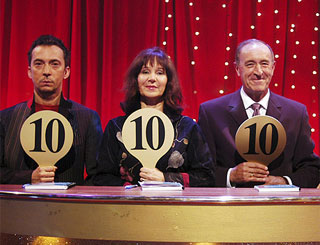It’s Graduation Season: One Tip for Screening College Grads
According to the National Center for Education Statistics (NCES), approximately 1.6 million students with bachelor degrees will graduate in 2014. Most of those students will graduate this May and most are trying – or will soon be trying – to find full-time jobs. For recruiters and hiring managers, that means lot of resumes flooding inboxes and recruitment CRMs, an overwhelming amount of phone screening, and a lot of misfires and rejection.
One of the biggest challenges in evaluating upcoming and recent college graduates is that most don’t have a track record that can be used to gauge future success. Sure, some students have very specific skill sets that put them in high demand (e.g. developers, scientists), but most candidates have pretty generic resumes that usually highlight one or two internships, a few summer/school jobs, the college or university attended, and sometimes a GPA for those that feel good about their academic achievements. If you or your clients are looking to hire a few entry-level folks, you have to rely on resumes to opt some number of candidates into the interview process. My guess is you probably gravitate towards the candidate’s college major/degree and some previous job or experience to determine which ones you want to invite into the screening process.
Once you’ve searched through all of those resumes, you need to get candidates on the phone or in front of you for a live conversation. This is where you can really start to get a feel for potential and fit. It’s also an opportunity to discover something less tangible that should not be overlooked when screening young talent: self-awareness.
In the book Who, Randy Street and Geoff Smart lay out a process for picking out top-level talent that will have a high likelihood of success in your organization. Who is definitely worth a read and provides a lot of specifics for how to structure the screening and interviewing process. Whether it’s the initial phone screen or a candidate’s first full interview (called a top-grade), the tip provided by Street and Smart that I find most valuable when screening recent graduates is to ask the question,
“Who was your boss at company X and what would s/he rate you on a scale of 1-10 when we call them?“
This question does 4 things: 1) It forces a candidate to think about his or her past performance relative to specific expectations or outcomes that were set (every job has outcomes, even if they’re not explicitly stated by a manager); 2) It forces the candidate to be honest based on the notion that you WILL call his/her former manager (note the “when we call them” part of the question); 3) It provides a specific data point – not a fluffy, subjective adjective – against which you can compare the manager’s feedback; 4) It forces the candidate to think about how someone else perceives them.

The first three benefits above are all important, but it’s #4 that can be really telling. Too many times candidates respond, “Oh, she’d give me a 10,” often stated with very little hesitation. When someone claims a 10, I usually reply, “A 10? Wow, good for you. So there is nothing else you could have done better in your role?” This typically creates a pause on the phone or a puzzled look in person, but is generally followed by the candidate standing behind his or her 10.
Calling yourself a perfect 10 is just youthful bravado, right? Unfortunately no. When someone says they’re a 10 they’re trying to shut down your line of questioning. They’re either a) insecure about their achievements and not mature enough to acknowledge that, b) genuinely deluded into thinking they have nothing left to learn and no distance to grow, or c) they’re ‘yes’ men or women who are more concerned with telling you what you want to hear instead of being honest and forthright with you. No matter what, this isn’t the type of person you want on your team. Run for the hills. Better yet, send them running for the hills.
I recently interviewed a woman who stated that her last boss would give her a 2. Surprised (actually, mildly shocked), I probed deeper on this revelation. The candidate proceeded to qualify her 2 by saying that the same boss would give her an 8 or 9 for effort, but that the 2 was based on her results as a sales professional. The candidate also said that the same boss would give her a positive reference, which I found interesting in light of the low overall performance score. I greatly admired the candidate’s honesty and ended up hiring her for a host of reasons. What stood out most to me during the interview process was that she understood her strengths and weaknesses and had a high degree of self-awareness. We’re only a few months in, and so far she’s been a great hire.
Hiring recent graduates can be tricky, but also very rewarding if you find the right ones. Just make sure that they haven’t fooled themselves and understand how others perceive them. New hires that have a high degree of self-awareness will be a lot easier to manage and will understand how to accept and utilize feedback much better than those perfect 10s.








